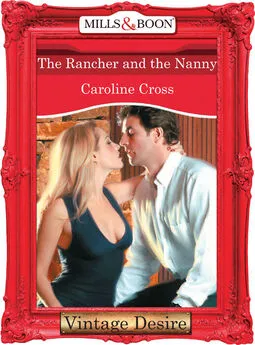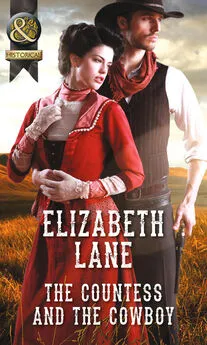John Creasey - The Toff and The Sleepy Cowboy
- Название:The Toff and The Sleepy Cowboy
- Автор:
- Жанр:
- Издательство:неизвестно
- Год:неизвестен
- ISBN:нет данных
- Рейтинг:
- Избранное:Добавить в избранное
-
Отзывы:
-
Ваша оценка:
John Creasey - The Toff and The Sleepy Cowboy краткое содержание
The Toff and The Sleepy Cowboy - читать онлайн бесплатно полную версию (весь текст целиком)
Интервал:
Закладка:
They were now out of the various overpasses and in Cromwell Road, with the tall, old-fashioned terraced houses on either side. Traffic was very thick, the stench of fumes nauseating on a warm English autumn day. A huge B.E.A. coach pushed by, crowding Rollison; the car behind him hooted. It wasn’t the police car, which had fallen farther behind. Soon, they were in thinner traffic by the Kensington museums, but a thick bottleneck at the approach to Knightsbridge lay ahead.
“Mr. Rollison,” Loman said, suddenly: “Is this London?”
“Yes — this is near the heart of London.”
“Those are pretty big buildings on the left.”
“They are museums. We are just entering Knights-bridge, one of the several centres of London.” Rollison found himself talking like a tour guide, and even enthusing over London. Unless the traffic was slowed down to a crawl in Piccadilly they would be in Gresham Terrace in ten minutes, and this was neither time nor place to start a game of questions and answers. It crossed his mind that Loman might open the door and get out when they were at a standstill, but the young American showed no sign of doing that. Indeed, he marvelled.
“That’s sure bigger than Levy’s,” he said of Harrods. “Levy’s?”
“That’s the biggest department store in Tucson. That place is bigger. Harrods.” He looked about him at thronged pavements, shops and tall buildings, and was startled when they drove beneath the Hyde Park Under-pass. As they came up in Piccadilly he said: “Gee! That park has more trees than Randolph, and it sure is green. You must have a lot of rain in England.”
“We have enough,” Rollison said, wryly. He put on his blinker for the next left hand turn, since Gresham Terrace was now only a few hundred yards away. He made the turn, with Thomas G. Loman still looking about him. Then Loman straightened up as Rollison said: “We’ll be at my home in two or three minutes.”
“That’s fine,” said Loman. “I am surely looking forward to seeing an English home, Mr. Rollison.” He put a slightly exaggerated emphasis on the ‘Roll’ but otherwise pronounced the name well. “Would you mind answering me a question? Would you mind telling me why you asked me to come and see you? Because I sure would like to know.”
7
Dead End
“MR. LOMAN,” ROLLISON SAID, somehow holding on to his patience. “What are you called? Tom or Thomas or Tommy or what?”
“Tom,” answered Loman, calmly. The fact that Rollison had so parried his question did not seem to affect him at all. “Just Tom. What do they call you? Richard? Or Dick? Or Dickie?”
Rollison shuddered.
“Never Dickie,” he replied. “Seldom Dick. Often Richard. Much more often, Rolly.”
“Like in holly?” asked Loman.
“Exactly as in holly.”
“Thanks.”
They were in Gresham Terrace, and by one of the near miracles that can make or mar a modern day, a parking space loomed up only a few yards from Number 25. Rollison manoeuvred the car into it, inches from the kerb, and Loman uncoiled himself and got out. He stood at his full height, peering up at the tall, graceful buildings, and slowly shook his head.
“I’ve never seen any place like it,” he declared.
“Except for a few dozen streets about here, there aren’t any,” Rollison told him. “There’s one grave dis-advantage. There is no lift.”
“Come again.”
“No lift — no elevator.”
“You mean you walk up? Like in a New York brown-stone?”
“Yes. And I live on the top floor.”
“If there’s one thing I have learned about you,” volunteered Thomas G. Loman. “It’s that you like doing things the hard way.” He looked up and down the street again, seeing the great variety of parked cars and a dozen people including a nursemaid holding a toddler by the hand, and then he actually patted the roof of the car. “What do you call her?” he asked.
“A nurse,” answered Rollison, with resignation. Loman looked astonished. “You call her —” he broke off, and smiled.
He had half-smiled before, just showing his white teeth set in the angular lower jaw, but this was the first time Rollison had really seen him smile as if he were deeply amused. It created deep lines at his eyes and others at the corners of his mouth, and it sank his jaw inches lower than its norm. Also, it wrinkled his nose at either side; there was no doubt at all that it made him look remarkably like a horse; a happy horse, Rollison thought with helpless indulgence.
“I don’t mean the blonde,” he said. “I mean the automobile!”
“Oh, the Bristol.”
“Come again.”
“The Bristol. B-R-I—”
“I know how you spell the name of the maker,” interrupted Loman. “You don’t have a name for her?”
“No.”
“I thought all the British had a name for their auto-mobiles. Like Genevieve, or something.”
“Genevieve —” began Rollison, and then he laughed outright. “Did you see the film of the old crocks’ race?”
“I surely did, answered Loman. “It was a dandy. So you don’t have a name for this beauty?”
“I’m afraid not,” Rollison said.
Loman shrugged, and they turned into the door of the house where Rollison lived. The tall American had to duck to get beneath the lintel, and once inside, stood and gaped up the narrow well of the staircase and the narrow staircase itself, with its wrought iron balustrade and the purple carpet. He held on to the rail as he went up ahead of the Toff, paused at each half and each main landing to look down, reached the landing before the Toff’s and stood still.
“Why don’t you find a name for your car?”
Rollison said amiably: “If you really want me to, I’ll consider it.”
“Sure, I want you to. An automobile like that shouldn’t be anonymous. Mr. — Rolly. Will you tell me something?”
Rollison thought: He can’t put the subject off much longer, and said: “Yes.”
“What happened to your automobile?” asked Loman. “In what way do you mean?”
“The holes. The dents. The gashes. Boy, they certainly made that automobile of heavy grade steel, any ordinary auto would have been like a pepper pot. It didn’t happen long ago, the edges where big pieces of metal tore through the steel are bright as silver. No oxidisation. So — what happened to the Bristol, Mr. — Richard?”
Rollison started up the stairs, but suddenly Loman gripped his arm with powerful fingers, and unless he wanted a struggle, it would be folly to pull himself free.
He saw the front door of his flat open an inch and had no doubt that Jolly was behind it, listening: he would have wondered why they were taking so long getting upstairs.
“A youth on a motor-cycle threw a hand grenade, but missed the window,” Rollison said clearly. “It struck the ground and went off : the Bristol caught most of the splinters.”
The door opened wider, an indication of Jolly’s concern.
Thomas G. Loman’s mouth dropped open and he took his hand away.
“Today?” he asked.
“Today.”
“In England?”
“At London Airport,” Rollison asseverated.
Thomas G. Loman blinked, closed his mouth and gulped, then slowly shook his head and said in a hopeless-sounding voice: “England is a surprising country. It sure is.” He started up the stairs again, still shaking his head — until Jolly opened the door wider still, showing his concern.
They were at the top landing.
Loman looked at Jolly as if at an apparition: the black jacket, grey cravat, striped trousers and highly polished black shoes. The sparse grey hair, too, and lined face. The melancholy brown eyes were turned towards Rollison and not until he was satisfied that his employer was unhurt did he acknowledge Loman, inclining his head and saying:
“Good afternoon, sir.”
“Jolly,” Rollison said. “Mr. Loman will be staying with us for a few days. And meanwhile, if lunch hasn’t spoiled —” He paused hopefully.
“Will ten minutes be all right, sir?”
“Perfect,” said Rollison. “You look after things in the kitchen, I’ll take Mr. Loman to his room.”
Jolly went the back way; Rollison led Loman into the study-cum-living room and saw him rake the Trophy Wall with his gaze. They both paused for a few moments, not saying a word, before Rollison led the way by the other passage to the spare room. This was small, but had a large bed across which even a man of six feet six could sprawl. Rollison saw at a glance that Jolly had cleared away the usual vanities and accessories that delighted a woman and had put out a set of silver backed brushes and silver combs. Some leather containers were there for masculine needs, and Jolly had placed the day’s news-papers as well as the latest Time and Playboy on the bedside table.
Loman appeared to take all this in at a glance, then turned and looked down at Rollison from his great height and demanded in an unbelieving voice:
“Did you call him Jolly, Rolly ?”
He stood there determinedly bewildered. His mouth opened half an inch and the expression in his eyes reminded Rollison of Pamela Brown’s. There was some-thing so helpless-seeming about him that, whether it was deceptive or not, Rollison felt the kind of sympathy he would feel for a young calf which had strayed from its mother. The spontaneous chuckle which had overtaken him several times today bubbled up and over, but not until he had said:
“Yes. Yes and — it’s not supposed to be funny.” He gave a snort of laughter but won only bafflement from Tom Loman. “He — he has been with me since before I was your age,” he managed to say.
“You mean he’s a family retainer?”
“You could say that,” Rollison agreed.
“Family retainers and jet aircraft, airport bombings and a man who doesn’t turn a hair at any kind of danger. Are you sure this is England, Rolly? Not Alice-inWonderland or something out of Hogarth?”
“Not Alice nor the eighteenth century,” Rollison assured him. “The bathroom’s through that doorway. Can you be ready in five minutes?”
“Sure can,” Loman assured him. He studied Rollison deliberately then shot out his long arms and dropped his hands on Rollison’s shoulders with the now familiar powerful grip, and went on in a deeper voice: “And after we’ve eaten we just have to talk. And I mean talk.”
“We shall talk,” Rollison promised, faintly.
Five minutes later, Loman entered the big room by the rear passage, a little ahead of Rollison. He went straight to the fireplace, just then screened, and surveyed the Trophy Wall. In fact he did not move until Rollison appeared; even then, he only moved his eyes.
“Will you have a drink?” asked Rollison.
“I guess not,” answered Loman. “Mr. Rollison, am I correct in believing that collection is unique?”
“I think it probably is,” Rollison said.
“I’m darned sure it is,” said Loman, with a surge of vigour. “I read about that, somewhere. I don’t remember much about it but I remember reading about that wall.” He saw Jolly appear from the other direction, carrying a steaming dish, and was soon at the hotplate near the table, helping himself to stewed beef which had been cooked very slowly in a red wine and flavoured with delicate spices that gave it a rare aroma and delicious savour. He finished long before the Toff, who jumped up, took his plate, and said:
“Let me get you some more.”
Loman took a second helping, ate somewhat more slowly, and shook his head sorrowfully when offered a third. As Jolly was bringing in a crisp-looking open apple tart and some whipped cream, he said:
Читать дальшеИнтервал:
Закладка:










